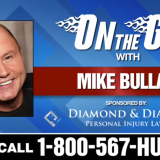A mild traumatic brain injury (MTBI) is commonly referred to as a concussion. Many people assume that a MTBI is not serious because most cases of mild traumatic bring injury heal on their own given time and proper medical care. However, any brain injury, regardless of the severity, can result in permanent damage to the brain that can lead to a variety of illnesses and disorders. For some victims, an MTBI can result in a permanent disability that changes their lives forever.
What Causes a Mild Traumatic Brain Injury?
MTBIs are caused by a blow or jolt to the head. The brain is protected by cerebral-spinal fluid and the skull. However, a sudden blow to the head can cause the brain to move within the skull. Depending on the force of the blow, the brain can “slam” into the hard interior of the skull. This can cause the fragile tissue of the brain to be damaged. Unlike a penetrating brain injury where an object enters the brain through the skull, a closed head injury such as an MTBI can cause injuries to several areas of the brain as it moves and strikes multiple areas of the skull.
Motor vehicle accidents, sports, and falls are the most common causes of MTBIs. You may not be able to prevent all accidents, but you can take steps to decrease your risk of a mild traumatic brain injury.
What Can You Do to Lower Your Risk of a MTBI?
Below are several tips that can reduce your risk of developing a brain injury if you are in an accident:
- Children and adults should use a safety harness each time they are riding in a motor vehicle. Adults should wear seat belts and children should be restrained in a child safety seat designed for their age, height, and weight.
- When you are riding a bicycle, motorcycle, skateboard, jet ski, snowmobile or when using skates, always wear a helmet. Research has proven that helmets reduce the risk of a head injury in an accident.
- When playing contact sports or participating in a sport that may result in a fall (i.e. rock climbing, horseback riding, snowboarding, skiing, sledding, etc.), wear protective head gear.
- Avoid falls by making living areas safe for your family, especially small children and elderly adults who are prone to falling. For senior adults, install handrails and grab bars and remove tripping hazards such as rugs and clutter. Provide adequate lighting and install rails on all stairways.
- Check your child’s playground to ensure that the ground is covered in a shock-absorbing material like sand or mulch. Avoid play structures that can result in a fall from an elevated level.
- Do not operate a motor vehicle, boat, bicycle, or another device when impaired by alcohol or drugs.
Signs and Symptoms of a Mild Traumatic Brain Injury
It is always best to be check by a physician after any head injury. You could experience a variety of symptoms after a head injury. Some of the more common signs and symptoms of a MTBI include:
- Headaches or chronic pain in the neck, shoulders, or head
- Blurred vision and slurred speech
- Vomiting or nausea
- Loss of consciousness
- Dizziness or problems with coordination
- Sensitivity to light or sound
- Difficulty with concentration, memory, or following conversations
- Sleep problems (i.e. trouble sleeping, sleeping too much, extreme drowsiness, etc.)
- Changes in mood such as depression, anxiety, irritability, or nervousness
- Numbness or tingling
If you or a family member experience any symptoms, your symptoms persist, or your symptoms grow worse, you need to seek immediate medical attention. You could be suffering from a severe case of MTBI that could be life-threatening if not treated properly.
Have You Suffered a Head or Brain Injury?
You may be entitled to receive compensation for your injuries. The team of lawyers at Diamond and Diamond have experience handling head and brain injuries. Call our 24/7 injury hotline at 1-800-567-HURT or visit our website to speak to someone now. We offer free consultations and case evaluations.







